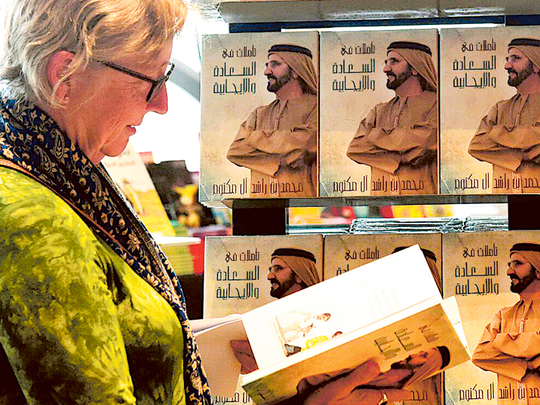
Throughout history, literary salons were regarded as captivating, refined, and important venues for artists and writers seeking to make their works timeless. For example, the literary salon hosted by Madame de la Sablière during seventeenth-century Paris was considered a distinguished cultural centre at the time and attracted a number of prominent writers and scientists.
As the wife of the Venetian doge during the fifteenth-century, Giovanna Dandolo was a renowned arts and literature patron, gathering writers and artists regularly in salons and sponsoring important projects, such as book printing. The Lebanese-Palestinian writer, May Elias Ziadeh, also hosted a literary salon at her parents’ home in Cairo, inviting prominent intellectuals, writers, and poets of the twentieth-century to meet and converse.
Broaden our visions
Indeed, literary salons have proven to be brilliant venues for bringing together the cultured elite, enabling them to get inspired, share creative and unconventional ideas, get exposed to key new and classical works, broaden their visions, form close friendships with other creatives, find networking opportunities that pave the way to publicising their works, and be recognised for their achievements. It has been particularly interesting to recognise the role of women in establishing these salons, oftentimes hosting them in their own living rooms.
Over the years, many writers formed their own tightly-knit literary groups with fellow authors. One such example is The Bloomsbury Group, which was active during 1907 to 1930 and comprised of London’s artistic and literary luminaries. The group included two different circles; the writers and artists.
Every Thursday, members of the writers’ group met at Vanessa Bell and her siblings’ home at the bohemian Bloomsbury neighbourhood of London, while the artistic group met on Fridays. During the meetings, they were treated with food whilst enjoying sparkling intellectual conversations, sharing ideas, critiquing works, discussing the latest developments in the arts and literary worlds, organising art exhibitions, and supporting one another’s creative pursuits.
Many of the Bloomsbury members were considered important intellectuals and innovators in their fields, marking their contributions in the arts and literary realms. Prominent members included writer Virginia Woolf, fiction writer E.M. Forster, painters Vanessa Bell and Duncan Grant, economist John Maynard Keynes, publisher Leonard Woolf, and art critic Clive Bell. One of their key contributions has been supporting young artists and exhibiting their works.
As a result of this work, The London Artists Association was later founded to provide artists with a means to selling their works. Likewise, members also inspired the establishment of the Contemporary Art Society, which aims at raising funds to purchase contemporary artworks for galleries and museums. Furthermore, the Hogarth Press was set-up in 1917 by Leonard and Virginia Woolf to publish the works of contemporary writers, including T.S. Eliot, Katherine Mansfield, and E.M. Forster.
Exchange of ideas
Meanwhile, in 1920s Paris, the Stratford-on-Odeon literary group held their meetings at the fabled Shakespeare & Company bookshop, providing a much-inspired setting for the exchange of ideas. Its members included American writer Ernest Hemingway, Irish novelist James Joyce, American novelist F. Scott Fitzgerald, and American novelist, art collector, and poet Gertrude Stein. The group also critiqued each other’s works and collectively, its members have made a significant contribution to the literary realm with their epic publications.
In modern times, many literary salons have successfully brought together fascinating writers to engage with their book-loving audiences. For example, British writer and playwright Damian Barr’s Literary Salon hosts regular literary events at the renowned Savoy hotel, selecting a rather impressive array of writers and themes. These include how families face predicaments, great libraries in literature, and reinvigorating the creative process.
One of its most interesting events is the monthly bibliotherapy session with Ella Berthoud, who discusses a number of books serving to improve one’s mood or answer a perplexing existential question. The Literary Salon also has a delightful podcast channel that includes over a hundred interviews with writers, such as Jojo Moyes, David Mitchell, and Eoin Colfer. The salon’s brand also finds itself on TV with The Big Scottish Book Club show and Damian Barr conversing with some of the biggest names in the literary world.
Inspiring millions to read
Perhaps one of the most successful contemporary book clubs is the one launched by TV host Oprah Winfrey in 1996 on her popular TV show. A renowned bibliophile, Winfrey’s profound love for the written word has inspired millions to read. Her current list has amassed 86 titles and has sparked buying frenzies after each announcement. Among her selections are Anna Karenina by Leo Tolstoy, One Hundred Years of Solitude by Gabriel Garcia Marquez, Daughter of Fortune by Isabel Allende, The Heart of a Woman by Maya Angelou, The Deep End of the Ocean by Jacquelyn Mitchard, and Wild by Cheryl Strayed.
Her most endearing attribute is the way she engages with authors on a profound level, openly discussing revelations, personal stories, and controversial issues facing people of different classes or races. Winfrey has also inspired people to form their own intimate books clubs with friends, whereby they agree on a monthly book, meet over a meal, share personal tales, and connect more deeply. By reading more, Oprah hints at the wonderful possibilities for self-improvement, which is uniquely a choice people can take to improve their lives.
Literary salons, writers’ groups, and books clubs have the power to enkindle the love of reading, serving to illuminate our minds, heighten our awareness, and elevate our human experience. By utilising the power of digital technologies, we could spread this affinity to the masses and together, strive to make the world a better place to live.
— Sara Al Mulla is an Emirati civil servant focusing on human development policy and children’s literature.




